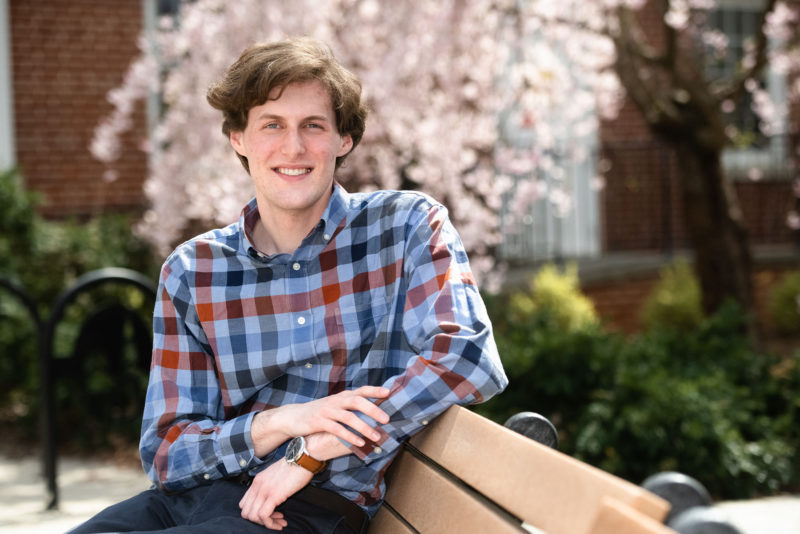
A University of Lynchburg history major and Westover Honors Fellow has been awarded a grant through the U.S. Fulbright Student Program to teach English in Germany. Rick Smallshaw ’23, a Lynchburg, Virginia, resident with minors in medieval and Renaissance studies and German, will leave for Germany in mid-September.
“It’s hard to pinpoint what I’m looking forward to the most, but I would say I’m definitely happy for the opportunity to not only live independently, but to do so in a foreign country,” said Smallshaw, who will graduate from Lynchburg in May.
“It’s a daunting, yet thrilling, first step into the real world.”
Smallshaw has long been interested in Europe, Germany, and the German language in particular. “I first started learning German in about sixth grade and have had off and on instruction ever since, including both formal classroom settings, as well as exchange programs, summer language programs, and self-instruction,” he said.
He also claims German ancestry on his father’s side — a fact that has fascinated him since childhood. “I remember seeing some of our old family memorabilia that was written in German [and] had German branding on it at a young age and being interested in both the language itself and the story behind those items,” he said.
He added that “being a history-oriented person” expanded that interest.
Smallshaw visited Germany about five years ago and, as he puts it, “definitely wanted to go back ever since.” He learned about the opportunity to return there as an English teacher through the University’s Fulbright committee.
He credits members of the committee — faculty and staff — with providing “enormous help” as he completed and revised his application for the prestigious and highly competitive program. Professors also wrote recommendations and evaluated his German-language skills.
“It was definitely a team effort,” Smallshaw said, “and I’m glad I’ve had so many enthusiastic individuals in my corner for this process!”
While he’s hesitant to look too far into the future, Smallshaw envisions his post-Fulbright life will include further education — a master’s and possibly a PhD in history — and a career where he can use the historical research skills learned at Lynchburg and the German-language skills gained during his Fulbright fellowship.
“I originally thought this would look like being a college professor, museum curator, or historian,” he said, “but I feel like working for the federal government, in foreign affairs or something, would also be something that I could excel at.
“However, I don’t like to predict too far into the future, because I’m aware of how quickly and dramatically career plans can change. For now, I’m going to put my entire effort into this next year as a Fulbright and enjoy every minute of it.
“Afterwards, I’ll worry about what comes next.”

